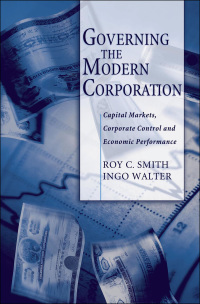Answered step by step
Verified Expert Solution
Question
1 Approved Answer
Refer the table below on the average risk premium of the S&P 500 over T-bills and the standard deviation of that risk premium. Suppose that
Refer the table below on the average risk premium of the S&P 500 over T-bills and the standard deviation of that risk premium. Suppose that the S&P 500 is your risky portfolio. Average Annual Returns S&P 500 Portfolio Risk Premium Standard Sharpe Ratio 1-Month S&P 500 Portfolio Deviation 20.59 Period T-Bills 3.47 8.30 0.40 1926-2015 1992-2015 11.77 10.79 2.66 8.13 18.29 0.44 1970-1991 12.87 7.54 5.33 18.20 0.29 1948-1969 14.14 2.70 17.67 11.44 8.33 0.65 1926-1947 9.25 0.91 27.99 0.30 a. If your risk-aversion coefficient is A= 3.7 and you believe that the entire 1926-2015 period is representative of future expected performance, what fraction of your portfolio should be allocated to T-bills and what fraction to equity? Assume your utility function is U = B) - 0.5 x Ao. (Do not round intermediate calculations. Round your answers to 2 decimal places.) T-bills 48.00 % Equity 52.00 % b. If your risk-aversion coefficient is A= 3.7 and you belleve that the entire 1970-1991 period is representative of future expected performance, what fraction of your portfollo should be allocated to T-bills and what fraction to equity? (Do not round intermediate calculations. Round your answers to 2 decimal places.) T-bills Equity
Step by Step Solution
There are 3 Steps involved in it
Step: 1

Get Instant Access to Expert-Tailored Solutions
See step-by-step solutions with expert insights and AI powered tools for academic success
Step: 2

Step: 3

Ace Your Homework with AI
Get the answers you need in no time with our AI-driven, step-by-step assistance
Get Started


